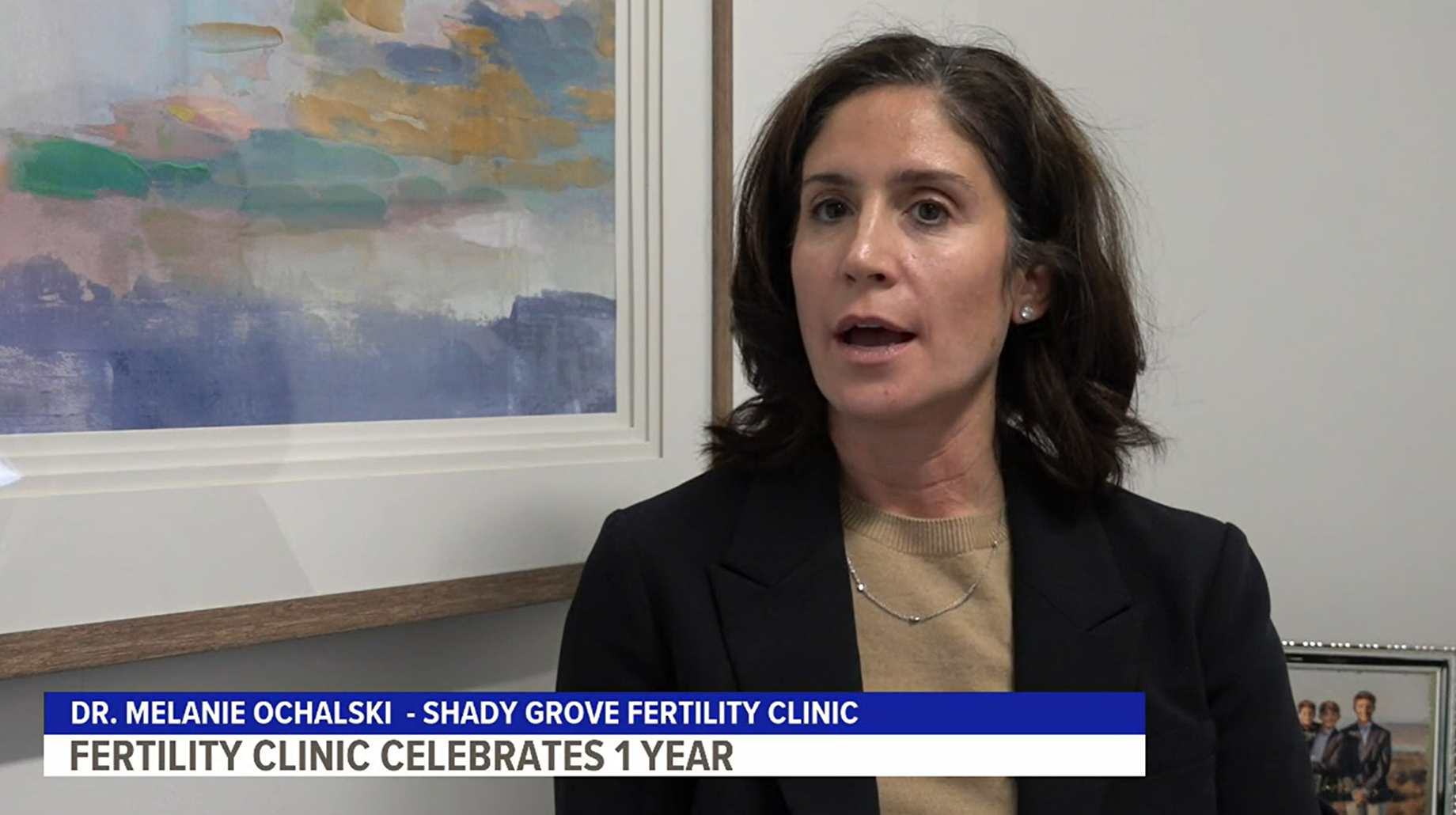Medical contribution by Kara Khanh-Ha D. Nguyen, M.D., M.P.H.
Kara Nguyen, MD, MPH, FACMG, FACOG, is board certified in obstetrics & gynecology, reproductive endocrinology and infertility, and medical genetics. Her professional areas of expertise include oncofertility, preimplantation genetic diagnosis, polycystic ovary syndrome, in vitro fertilization, donor egg, donor embryo, and fertility preservation. Dr. Nguyen see patients at SGF’s Mechanicsburg and Lancaster, Pennsylvania offices.
When it comes to a woman’s fertility, or ability to get pregnant, there are many misconceptions about fertility health, trying to conceive, and when to consider seeing a fertility specialist. At Shady Grove Fertility, we know it’s important to educate people about their natural fertility, so they can make informed decisions about when it might be time to consider a fertility specialist if pregnancy has been unsuccessful.
Dr. Kara Nguyen shares five facts you should know about your fertility when trying to get pregnant.
1. Natural pregnancy rates are about 15 to 20 percent per cycle.
Most couples do not achieve pregnancy the first month they actively try to conceive. If there are no major barriers — such as blocked Fallopian tubes, underlying medical conditions, or low sperm counts — 90% of couples achieve pregnancy after 1 year of trying.
When a female reaches their 20s, the chances of becoming pregnant naturally each cycle is only about 15-20% each month. That number declines gradually through a female’s 20s and early 30s. Once in their mid-to-late 30s and 40s, the natural pregnancy rate drops to less than 10%.
2. Infertility is common.
While most couples where the female partner has regular cycles and is age 35 or younger will achieve a pregnancy within the first year of unprotected intercourse, 1 in 6 couples will have difficulty conceiving. The underlying reasons for infertility can be categorized under female factor, male factor, or a combination of both.
When there is a condition preventing a successful pregnancy that testing cannot identify, unexplained infertility is diagnosed. Unexplained infertility occurs in about 10% of couples.
“Be cautious of comparing your infertility experiences to others because there is not a one-size-fits-all treatment protocol or diagnosis,” explains Dr. Nguyen. “It is common also for couples to have no past family history of fertility issues. For this reason, it is always best to be your own advocate and discuss your fertility early on with your primary care provider, OB/GYN, or directly with a fertility specialist to get quick answers.”
3. Timing sexual intercourse is not exact.
A normal menstrual cycle lasts from 21 to 35 days, with the fertile window occurring 6 days prior to ovulation. Plan to have sexual intercourse during this timeframe for the best chances of success for a natural pregnancy.
It is a common misconception that frequent ejaculation lowers male fertility, but what it can do is add to the overall stress of trying to conceive. Having intercourse every 1 to 2 days during this time will help maximize your fertility within a given cycle. If you are using home ovulation predictor kits, having intercourse once at the time of the surge is sufficient.
However, females with irregular menstrual cycles will have more difficulty determining their fertile window. There are several methods and tools you can use to pinpoint when you’re ovulating based on your menstrual cycle, but let’s first weigh the pros and cons of each:
- Using basal body temperature
- Pro: The production of progesterone potentially increases the basal body temperature.
- Con: Body temperatures will only increase after ovulation, so you can completely miss your fertile window by relying on this method.
- Home ovulation predictor kits
- Pro: These kits useful for people with regular menstrual cycles
- Con: These kits are highly unreliable for people with irregular cycles due to hormonal imbalances like polycystic ovary syndrome, which affects about 5 million females in the United States of reproductive age.
- Lubricants
- Pro: Lubricants can aid in the pleasure of sexual intercourse
- Con: Some lubricants can lower sperm motility, such as mineral oil, canola oil, or hydroxyethylcellulose-based lubricants.
4. You do not need to wait to see a fertility specialist.
Couples today are much more aware of infertility issues than in the past. Many have friends or family who have struggled with infertility and may not be open to discussing these experiences. It is also more important for females to be aware of their fertility, especially with more people choosing to start their families later in life.
The recommended guidelines for when to see a fertility specialist are:
- Under 35 with regular cycles, unprotected intercourse, and no pregnancy after 1 year
- 35 to 39 with regular cycles, unprotected intercourse, and no pregnancy after 6 months
- 40 or over with regular cycles, unprotected intercourse, and no pregnancy, more immediate evaluation and treatment are warranted
There are also some warning signs that signal the need to see a fertility specialist sooner such as irregular menstrual cycles, a history of endometriosis, other hormonal imbalances, a history of extensive abdominal surgeries, and more. A fertility specialist will provide patients with an individualized treatment approach based on simple diagnostic testing that informs patients of the cause of their infertility.
5. Beware of claims that certain foods and herbal therapies can improve fertility.
We may hear advice from people with good intentions and those who had “good experiences” with certain foods, products, or herbs. Everything from pineapple core to Mexican insects to bone broths has been suggested to boost “fertility.”
Claims from vitamin companies also suggest they can help improve egg or sperm quality. Many products are unregulated, which makes purity, dosing, and effectiveness highly questionable. Some commonly used herbal remedies such as dong qi, black cohosh, red clover, and St. John’s wort, which may be taken for other conditions, may be detrimental if trying to achieve pregnancy and can interfere with fertility medications.
It is important to let your doctor know of all supplements that you take. Just because it is herbal and natural doesn’t make it safe in all situations.
Do you suspect infertility is present?
To learn more or to schedule an appointment with one of our physicians, please contact our New Patient Center at 1-877-971-7755 or complete this simple form
Editor’s Note: This post has been updated for accuracy and comprehensiveness as of May 2022.







